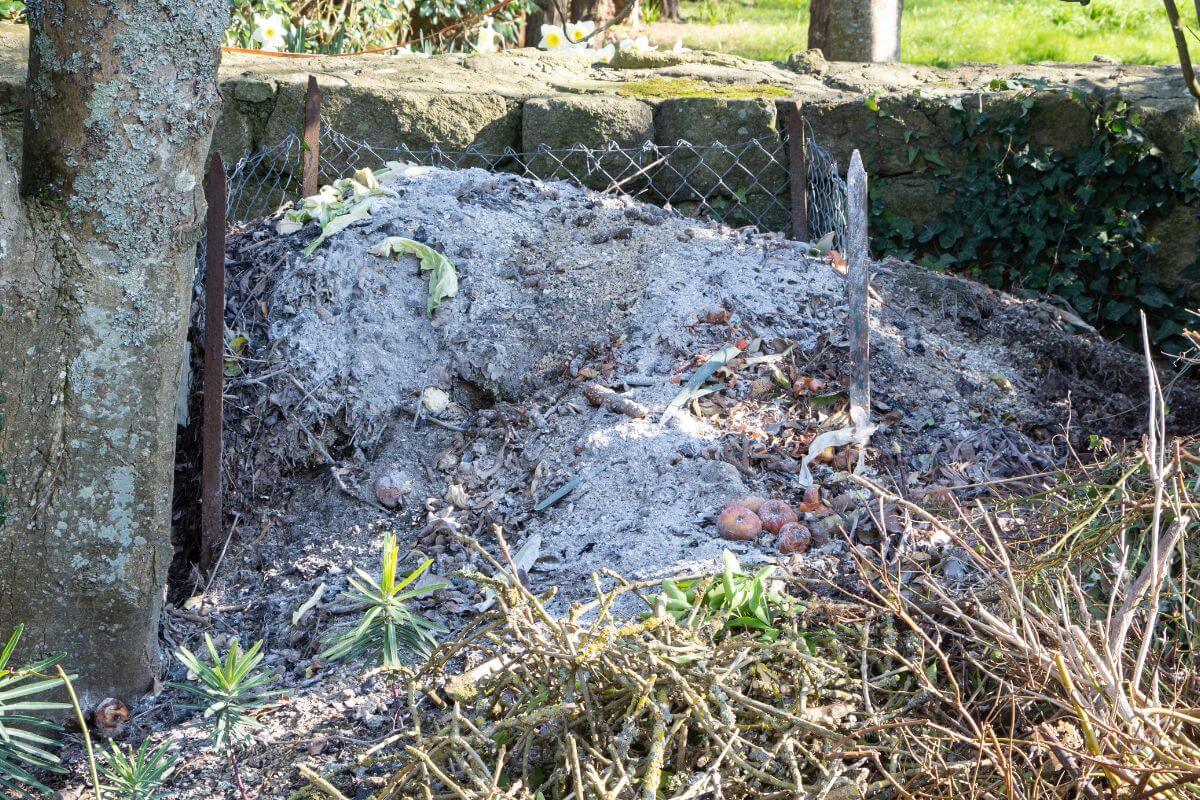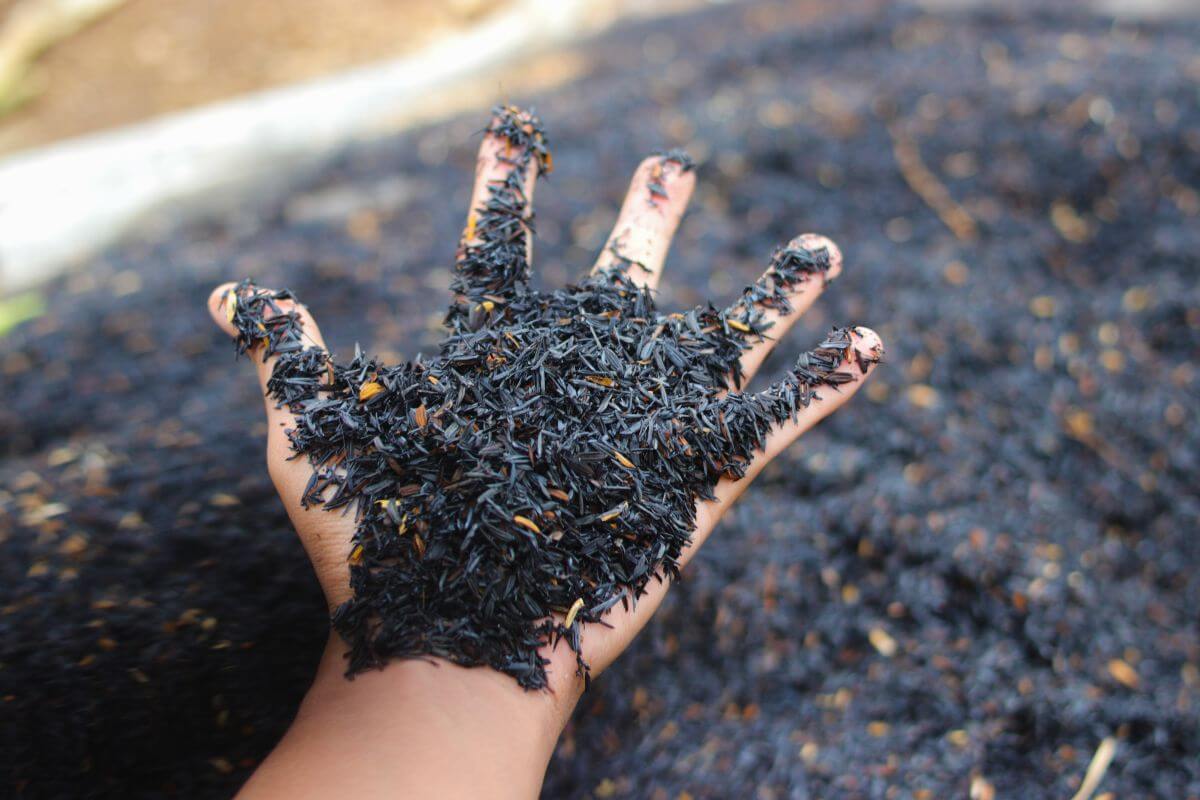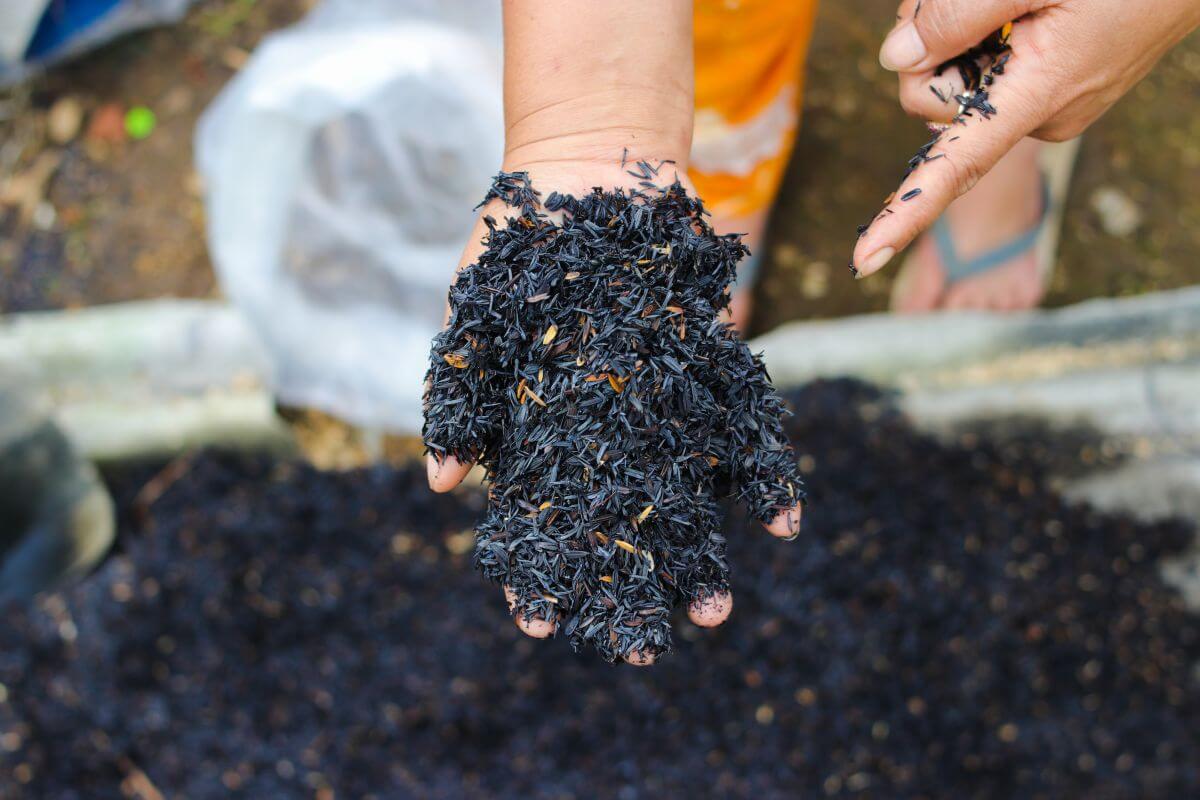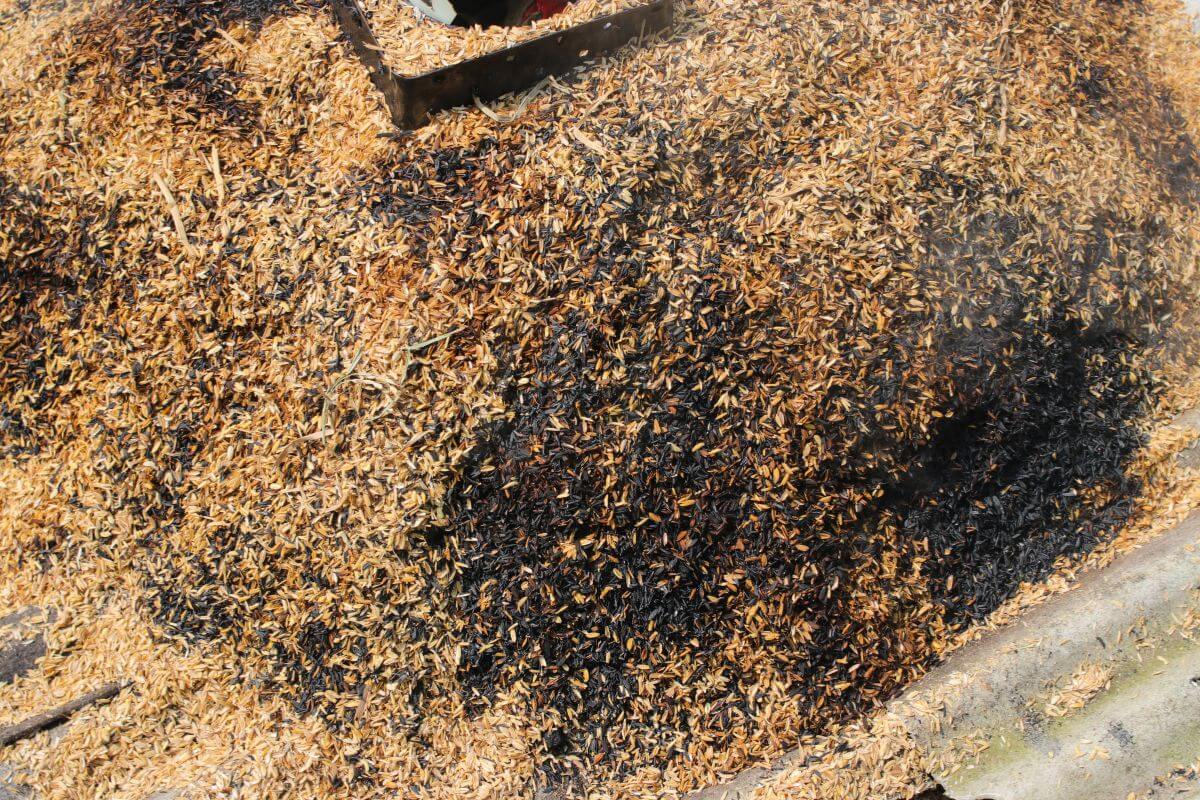Wood ash, fireplace ash, charcoal ash, barbecue ash – can you put ash in compost?
Well, I’m here to tell you that you can put ash in your compost pile!
There are many reasons why you would and would not want to add ash to your compost pile. This article will cover all those reasons, and what type of ash you can and cannot compost.
- Related article: Ultimate Guide to Composting
Can You Put Ash in Compost?

You can definitely put ash in the compost pile. In fact, ash can be a great additive to your compost. Ashes don’t contain any nitrogen and are a useful source of trace elements, such as potassium and lime.
However, the benefits of the ash will correlate with the material that was burned before it became ash. Any chemicals on the burned material will negatively impact your compost, and ash from certain substances should be avoided.
As ash has a tendency to raise the pH of your soil, you shouldn’t add it directly to the earth or spread it around plants. That being said, if a soil pH test indicates that your soil is acidic or has a low potassium level, adding a small amount of ash can help make the soil more alkaline.
Is Ash Brown or Green Compost?
As ash doesn’t contain any nitrogen, it counts as brown material for compost.
The classification of brown and green materials is directly related to the nitrogen and carbon content. Browns have a higher carbon content and decompose slowly, while greens have a higher nitrogen content and break down quickly.
Does Ash Make Compost Acidic or Alkaline?

Ashes have a high pH, which means that they are alkaline and will make the compost more alkaline. That’s great for raising the pH level of acidic soil and balancing the overall pH in the compost and soil.
Combined with the lack of nitrogen, their alkalinity makes ashes the perfect material to balance out a compost heap that has an excess of green materials. Green materials include compost ingredients such as fresh grass clippings and food scraps.
If your compost is slimy and smelly, that’s because it has too many nitrogen-rich materials. Adding wood ash balances out the carbon to nitrogen ratio and will help raise the pH levels.
Can You Put Wood Ash in Compost?
Wood ash is usually the only type of ash that you should compost. It is a great source of potassium, with ashes from young wood having a higher potassium content than older branches. It also contains trace nutrients like copper, manganese, iron, and zinc, as well as heavy metals like lead.
Can You Put Charcoal Ash in Compost?
As harmful chemicals are usually added to charcoal briquettes to help them catch light and fire, charcoal should not be added to your compost.
You can use charcoal ashes in compost if:
- You are using chemical-free charcoal.
- You can be sure there are no chemical additives to the charcoal.
- You have not used lighting fluid.
Otherwise, you should steer clear of composting charcoal ashes.
Can You Put Fireplace Ash in Compost?
Generally, you can compost fireplace ash, but it obviously depends on what you burn in your fireplace. If you are only burning untreated wood, then you will be fine.
However, smokeless fuel and chemical-treated coal are not suitable for composting.
Can You Compost Ash from a Barbecue?
Ash from a barbecue grill also depends on what you are using as fuel. As barbecues usually use chemical-treated charcoal and lighting fluid, it’s best not to put the ashes on your compost.
If you are barbecuing with untreated wood, then they will be fine to compost those ashes.
How to Compost Ashes

If you have good leftover ashes to add as a layer of ash, here are the steps for how to compost ashes:
- Ensure the ashes have completely cooled before handling them.
- Wear gloves, eye protection, and a mask. While this may seem extreme, ash can be an irritant to the skin. And when dealing with ash outdoors, it can easily be blown into the air, getting into your eyes and lungs.
- Add the ash with nitrogen-rich items like kitchen scraps.
- Mix into the compost.
Some people will add the step of leaving the wood ash out to break down before adding it to your compost. This is purely preference, although if you are adding a large amount of ash, then perhaps you might want to try this.
However, keep in mind that potassium can easily leach out of wood ash. If you have left ashes out in heavy rainfall before adding them to your compost heap, you will have already washed away the valuable nutrients. Be sure to properly store your ashes (more on storage below).
Some gardeners like to add ashes in the winter, so they have time to break down, and some people prefer to do it in the spring and summer when they add more green materials. Whichever way you do it, make sure that you add some green materials along with the ash.
The best way to use ash on a compost heap is just to add a little bit of ash every now and again as a brown layer.
Can You Put Too Much Ash in Compost?

Yes, you can definitely put too much ash in compost. Adding too much ash is one of the most common issues when composting ash. As it is alkaline, it can unbalance the pH of your compost heap, affecting the fungi, microbes, and beneficial creatures that inhabit your heap.
Mature compost is already more alkaline than fresh compost, so you should only add small amounts of ash at a time to mature heaps.
The best way to add ash to your compost heap is with nitrogen-rich green materials. The ash will balance out the influx of nitrogen, and the acidic green materials will help maintain a neutral pH. If you put a lot of farmyard manure into your compost, wood ash is a great companion additive.
As a general rule, once you’ve mixed your wood ash into your compost, you should not be able to identify it. If you have added so much that you can easily see it after turning the compost, then you’ve probably added too much ash.
If you have a lot of ash, don’t add it all at once. Store it and add it to your compost sparingly.
How to Store Ash
Even if you are sure that your ashes are completely cooled, you should store them in a metal container with a tight lid just to be sure. Ash has a way of hiding small embers that will start a fire if the proper precautions have not been taken.
Metal is best, as it will not burn or melt, and if you ensure the lid is tightly on, no air can get into the container. Then any embers that might be lurking will soon die out.
You should also store your container on concrete, brick, or stone surfaces. Leaving your container on decking or a wood surface increases the risk of accidental fire.
Storing wood ash and gradually adding it to your compost is the best way to ensure the pH levels of your compost heap are maintained. You don’t want high alkaline compost if you were to add it to the soil of acid-loving plants, such as azaleas, blueberries, and rhododendrons.
Storing wood ash can come in handy when gardening. For example, if you notice your compost getting too acidic, it’s convenient to have some wood ash on hand to combat the problem. Wood ash can also be used to treat clubroot in brassicas and can be raked into your vegetable plot in late winter.
Ash in Compost Final Thoughts
All in all, wood ash is an amazing addition to compost. It adds nutrients, improves the structure of the compost, and helps keep the pH balanced. However, it does require a little care and attention. Make sure you know what kind of ash you can and can’t use before you begin.
For more on compost materials, check these articles out:

